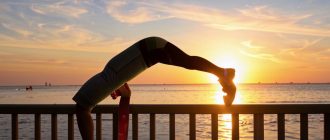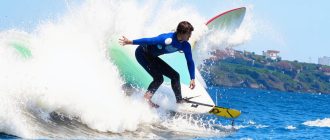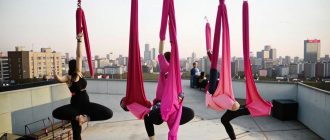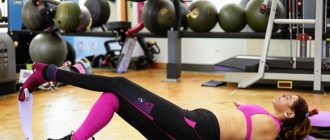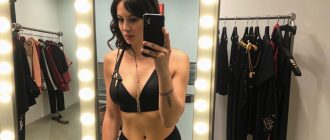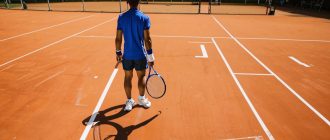The off-season is a special period in a runner’s life, when it is necessary to maintain the level of training and at the same time restore resources and lay the foundation for future starts. The body is psychologically and physically exhausted, and a new season is ahead, so it is important to harmoniously distribute the load.
The main emphasis should be on strength exercises, and the running volume should be reduced (both the number of training sessions and kilometers). This period is ideal for paying attention to technique, working out the mistakes of past starts, setting goals for the upcoming competition season, and learning to listen to your body better.
Pavel Kondrashyov, the coach of the Running Community, recommends to pay attention to the most common mistakes of the off-season, which can cause even more damage to the body: “This is maintaining the same running volume, violation of the regime and serious relaxation in nutrition.
The basis of the training process should be general physical training (GPP): we pump the back, perform foot exercises, strengthen all muscle groups and ligaments, etc. You can also diversify the training process with game sports.
What to wear for training in winter?
“In the off-season, you need to prepare your equipment thoroughly. “If we are talking about the top, it is usually three layers: a thermal jacket (moisture-repellent clothing), a jacket with fleece and a ventilated windbreaker with insulation, which will protect from wind and rain. The number of layers should be varied depending on the pace. For example, if the pace is below 8 min/km at temperatures between 0 and +5, I would prefer another thin layer. We choose the bottom similarly: thermal + pants with fleece (or without, if the weather is relatively warm), sneakers preferably waterproof, better special models for winter. Do not forget about a hat, gloves, baffle, as well as high socks that will cover the ankle,” – recommends the coach of the “Running Community” Vera Sosnova.

What to eat during the off-season?
The main recommendation during this time is to maintain a balanced diet for normal immune system function. Nutriciologist Ksenia Kutuzova recommends adjusting nutrition to training cycles, and doing it gradually.
“If you reduce the amount of training – reduce the volume of food, but smoothly, by 15-20%. Carbohydrates should be about 4-5 g. per kg of weight, proteins – 1.3, fats – 1.3-1.5. Try to form a diet to support immunity: seasonal vegetables, fermented milk/fermented foods, vitamin D (preventive dose of 2000ME, but it is better to get analyzed), vitamin C, A and trace elements (nuts), spices. Add warm meals, hot soups, but don’t forget a portion of protein. Watch out for fats – the body will want to warm up, and will store the excess in subcutaneous fat”.
Xenia also recommends paying attention to adaptogens – a group of biologically active agents of plant origin, which have a tonic effect on the body, stimulate the CNS, increase endurance and resistance to harmful influences, and help keep the immune system in tone. “The most effective ones recognized (in sports, among others) are ginseng, eleutherococcus, Chinese lemongrass, ashwagandha, ginger and rosehip,” she adds.

Indoor VS outdoor
In the off-season, it’s best to combine workouts. For example, OFP, SSU, speed work is more comfortable to perform in the arena, while long runs can be done outdoors.
Runners about the off-season
“Amateur sport is, first of all, about love for yourself, your body, and sports results are a pleasant addition. That’s why the main motivation is ourselves. In order not to lose it, I recommend keeping a sports diary, where you will record your achievements, training and well-being. This way you can clearly see your progress in training, keep track of your volume and get additional motivation for future workouts,” shares Pavel Kondrashyov.
Elena Korobkina: “I started a retractive period of training, after the season I had a rest and two weeks later I started running. I devote more time to physical fitness, strength and jump training: I need to prepare my legs for the next, more intensive work. Now is not the easiest period in training, because there are no starts, and it is difficult for people to force themselves and find motivation, but we need to realize that we are laying the foundation for our future victories and records. The better and better we train now, the easier it will be for us later. Advice to everyone: in this weather be sure to take dry clothes and socks for changing clothes, and also drink vitamin D, the sun is not enough now”.

Vladimir Nikitin: “The mountains of Kislovodsk are waiting for me from October to December. October – physical training, strength training, muscle pumping. November is a voluminous month. December – more speed work. In January we will come down, start training in the arena with an emphasis on speed. I advise everyone to take care of themselves, listen to their body and run for pleasure. The main task of an amateur is to enjoy. As my coach says, it’s better not to finish than to run over”.

Vyacheslav Smayev: “As an amateur runner I spend the off-season like this:
I try to get enough sleep: at least 8 hours, as sleep is the basis of recovery. I reduced running training volumes by 20%, October-November – no more than 200 km per month. I try to run mostly in nature in the park or in Luzhniki on a rubberized track. The advantage of the park is in its covering, as it is ground, which has a favorable effect on the ligaments and joints. I pay more attention to strength training so that my musculoskeletal corset is ready for loads. I make sure to add meetings and trips with friends to a bar, club, restaurant to my daily routine. A few mugs of beer or glasses of white dry with a pizza or a burger will not be superfluous. Gingerbread must be given to my body.
At the end of November I will definitely undergo a full medical examination with tests to know the condition and critical indicators of my body. I highly recommend each of you not to compromise this moment. From December I will smoothly start getting in shape.

Eugenia Shimko: “Due to the epidemiological situation, all my planned races for the fall were canceled. Honestly, there was a period of confusion and loss of motivation. But the coach does not let me relax. About once a month he puts a test run (5, 10, 21.1km). And it really helps. So far I’ve managed to do a personal best every time. The second item on my off-season motivation list is new running bows. I’ve never bought as much athletic stuff as I do now. But it’s a really good motivator. For every morning run (if I haven’t overslept) I get ready like a holiday. A bright windbreaker, a beautiful baffle in tone, a new model of sneakers, bright lipstick – and no rain or fog can get in the way.
I’m going to share a couple of personal lifehacks:
- First, checklists. I love lists. And the process of crossing off accomplished items. Before every scheduled test run for the month, I print out a checklist a la “training for a birthday half marathon” with items that will definitely help me, but that I’m too lazy to do regularly. For example, drink 2 liters of water, go to bed at 10 p.m., pump my abs for 15 minutes, get a roller massage, etc. And I make sure to check off each of them daily. And from these little habits come the strength to run a little faster than before.
- Second, social media. I already have a tradition of posting at least one story from each run on Instagram. As it turns out, many people are also motivated to put on sneakers and go out to exercise, despite the weather. And I’d just be embarrassed in front of my subscribers if I got lazy and stayed in a warm bed in the morning. Well, no, the morning should start cheerfully.
Lyosha Le: “I train mostly outdoors, building up my base in the form of volumes – a lot of running at low heart rate. But I don’t forget about speed, so I periodically visit the arena for speed work or control runs at 3 and 5 km. Also in the off-season I pay special attention to physical fitness. I go to the swimming pool so that I don’t get bored at all.

Before each season I set new goals and challenge myself. I choose the starts I would like to take part in: intermediate and main starts, so the motivation does not disappear, because if you want to show results at the chosen start – train”.

